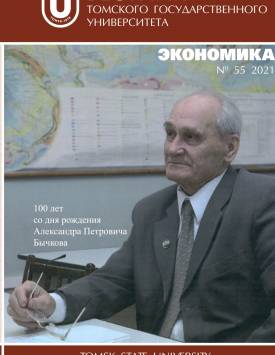On Diagnosing the Quality of Enterprise Employees’ Working Life in the Context of the Concept of Decent Work
The most important socioeconomic category reflecting the satisfaction of employees of enterprises (organizations) with the conditions of employment is the quality of working life (QWL). Today, QWL is associated with the concept of decent work. Meanwhile, the analysis of the profile literature revealed the ambiguity of indicators (parameters) of decent quality of working life, on the one hand, and the same type of proposed procedures for diagnosing the QWL level using typical gradations, on the other. Thus, the differences in the known methods of assessing the QWL level are essentially limited by the diversification of indicators of decent work (respectively, decent quality of working life) and methods of interpreting primary information (questionnaire data, results of expert assessments, analyzed statistics or reports). The main point in the author’s position is the conceptualization of the decent quality of working life (DQWL): the concept has a specific purpose and, accordingly, requires the development of a special methodological tool for its diagnosis. In the article, the key points of the methodology for the DQWL study that are associated with the substantiation of the target functions and the list of criterion indicators, are substantiated; the principal differences between the functions of DQWL and QWL are emphasized; the author’s methods (development of the QWL Expert Assessment Map in the conditions of realization of the concept of decent work; determination of the relative importance of the DQWL functions; identification of the DQWL functional priority profile) are presented, their application is illustrated by examples, and the obtained results are analyzed. In the conclusion, the typical nature of the presented methodological tools for the DQWL diagnosis and management is emphasized; this nature justifies the legality of replicating the tools in specialized publications.
Keywords
priority profile, methodological toolkit, decent quality of working life (DQWL), DQWL functionality, DQWL criteria indicatorsAuthors
| Name | Organization | |
| Milyaeva Larisa G. | Polzunov Altai State Technical University | lgm17@mail.ru |
References

On Diagnosing the Quality of Enterprise Employees’ Working Life in the Context of the Concept of Decent Work | Vestnik Tomskogo gosudarstvennogo universiteta. Ekonomika – Tomsk State University Journal of Economics. 2021. № 55. DOI: 10.17223/19988648/55/7
